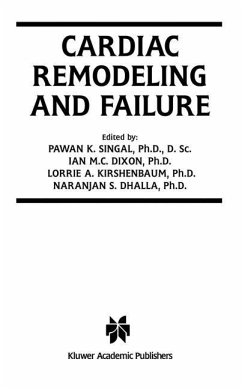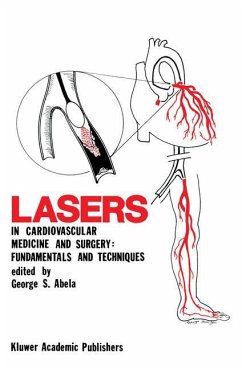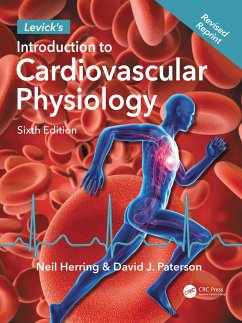
The Hypertrophied Heart
Versandkostenfrei!
Versandfertig in 1-2 Wochen
115,99 €
inkl. MwSt.

PAYBACK Punkte
58 °P sammeln!
Whenever the heart is challenged with an increased workload for a prolonged period, it responds by increasing its muscle mass - a phenomenon known as cardiac hypertrophy. Although cardiac hypertrophy is commonly seen under physiological conditions such as development and exercise, a wide variety of pathological situations such as hypertension (pressure overload), valvular defects (volume overload), myocardial infarction (muscle loss) and cardiomyopathy (muscle disease) are also known to result in cardiac hypertrophy. The Hypertrophied Heart compiles state-of-the-art presentations in the area o...
Whenever the heart is challenged with an increased workload for a prolonged period, it responds by increasing its muscle mass - a phenomenon known as cardiac hypertrophy. Although cardiac hypertrophy is commonly seen under physiological conditions such as development and exercise, a wide variety of pathological situations such as hypertension (pressure overload), valvular defects (volume overload), myocardial infarction (muscle loss) and cardiomyopathy (muscle disease) are also known to result in cardiac hypertrophy.
The Hypertrophied Heart compiles state-of-the-art presentations in the area of molecular biology, cellular physiology and signal transduction in cardiac hypertrophy and heart failure to help in the formulation of new concepts and approaches for stimulating research. The book contains two sections: Mechanisms of Cardiac Hypertrophy, and Cardiac Failure in the Hypertrophied Heart. It is hoped that both students and scientists, as well as clinical and experimental cardiologists, will find this book useful in understanding the molecular and cellular events underlying the development of cardiac hypertrophy and the transition from cardiac hypertrophy to heart failure.
The Hypertrophied Heart compiles state-of-the-art presentations in the area of molecular biology, cellular physiology and signal transduction in cardiac hypertrophy and heart failure to help in the formulation of new concepts and approaches for stimulating research. The book contains two sections: Mechanisms of Cardiac Hypertrophy, and Cardiac Failure in the Hypertrophied Heart. It is hoped that both students and scientists, as well as clinical and experimental cardiologists, will find this book useful in understanding the molecular and cellular events underlying the development of cardiac hypertrophy and the transition from cardiac hypertrophy to heart failure.














